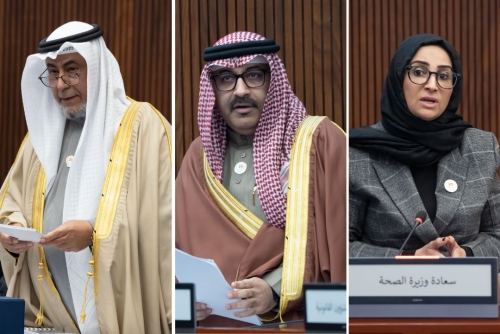Ministers defend hiring policies amid criticism
TDT | Manama
Email: mail@newsofbahrain.com
Ministers defended their Bahrainisation policies in Parliament yesterday, responding to criticism of continued expatriate hiring, breaches of employment rules, and missed opportunities to prioritise Bahraini workers.
A parliamentary investigation into employment practices across the public and semi-public sectors revealed ongoing challenges and spurred debate over necessary reforms.
Education Minister, His Excellency Dr Mohammed Mubarak Juma, reported that 3,132 Bahrainis had been employed in the education sector over the past five years. “These numbers show that we are replacing expatriates with Bahrainis at a steady pace,” he said.
The figures included 203 Bahrainis hired in 2020, 590 in 2021, 877 in 2022, 951 in 2023, and 511 in 2024.
These hirings followed the termination of expatriate contracts each year.
Dr Juma revealed that Bahrainisation within the Ministry of Education has reached 86 per cent.
“We are proud to say that every graduate of Bahrain Teachers College has secured a job, which shows the strength of the programme and its ability to meet the job market’s needs,” he added.
The minister acknowledged the challenges of recruiting inexperienced Bahrainis but stressed that the ministry has provided training programmes to help them succeed.
“We are also encouraging private schools to recruit more locals by offering a pool of qualified Bahraini teachers who couldn’t be absorbed into government schools,” he said.
Dr Juma outlined improvements to the scholarship system, including the introduction of opportunities in the US and the UK.
“By revising selection criteria to focus on cumulative grades, we’ve ensured a fairer and more transparent process,” he said.
Health Minister, H.E. Dr Jaleela Al Sayed, reported advancements in Bahrainisation within the healthcare sector.
“We have already replaced expatriates in primary care, leaving only one foreign employee who is currently training their Bahraini replacement,” she said.
In public hospitals, 85 per cent of secondary and tertiary care doctors are now Bahrainis, with plans to gradually replace the remaining expatriates.
She noted that 170 Bahrainis are currently enrolled in advanced training programmes, while 55 others are pursuing specialised studies to meet the workforce’s future needs.
The ministry has partnered with three universities to expand nursing programmes and introduced scholarships for fields such as emergency care and midwifery.
Dr Al Sayed assured that expatriate contracts would not be renewed once Bahraini replacements are available.
“Our goal is to ensure Bahrainis are always the first choice for healthcare roles,” she added.
Minister of Parliamentary Affairs, H.E. Ghanim bin Fadhel Al Buainain, reported a 24 per cent drop in expatriate workers in the public sector, with numbers falling from 7,582 in 2019 to 5,766 in January 2025.
“The majority of remaining foreign employees — around 90 per cent — are in education, higher education, and healthcare, ensuring that essential services remain uninterrupted,” he said.
Since December 2023, hundreds of expatriates in non-essential roles have been replaced with Bahrainis.
However, Al Buainain acknowledged challenges posed by legal restrictions, including the Data Protection Law, which limited access to certain information needed for the investigation.
Al Buainain praised the government’s cooperation with the parliamentary committee, noting that over 90 per cent of 2,358 questions submitted had been answered.
The committee conducted seven visits to ministries, government bodies, and major employers, including Alba, Asry, and Bapco, to assess hiring practices.
Related Posts

